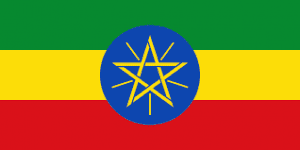Best Micro Financial Institutions (MFIs) in Ethiopia (2023)


The not so low hanging fruit that’s worth its reach
The determined and motivated among us have all wondered “if I just get this amount of money, I could start this small business”, and “….this would be a great time to finance that child care business I always wanted”
That is where the micro financial institutions come in, with their accessible business model, a boon to poorer nations, and the motivated individuals that make some of them up.
What are MFIs (Micro Financial Institutions)? What do they do?
Microfinance is the ‘activity or business of providing financial services, such as small loans, to poor people or new businesses that cannot use traditional banking services, usually in developing countries, according to the Cambridge Business English Cambridge English dictionary micro financial institutions (MFIs), financial institutes apart from banks and insurance companies, generally aim to provide loans or micro-credits to low-income individuals, small businesses, entrepreneurs, and firms, as well as savings and insurance, to those who aren’t eligible for getting loans from banks. They serve a major purpose in poverty reduction, as such is essential to develop nations.
Since MFIs are considered high-risk operations, the interest rates are usually high, that’s the compromise of getting loans with little to no collateral. Easily accessible loans always come with certain caveats, as repayment conditions could be unforgiving.
Microfinance does to the less financially secure individuals and households, what banks do to the financially well off. Which is elevates one’s economic status and improve the living conditions when assisting entrepreneurs to get their preferred business to take off.
What governs MFIs (Micro Financial Institutions) in Ethiopia?
The National Bank of Ethiopia (NBE) is the regulating authority for all types of financial institutions. As such the National Bank of Ethiopia “licenses, supervises and regulates the operations of banks, insurance companies and other financial institutions”.
Accordingly, in relation to MFIs:
- Ensures the safety and soundness of MFIs
- Ensures their efficiency and compliance of MFIs with rules and regulations
- Ensure protection of depositors.
As a licensing authority for financial institutions, thus, NBE sets the requirement needed from customers (MFIs) to get the service or approval of establishment, the primary one being that of licensing.
The National Bank of Ethiopia requires detailed requirements to launch micro financial institutions, which include:
- Shareholders have to be Ethiopian nationals;
- The minimum paid-up capital required is Birr 200,000;
- Has to be established in the form of a share company;
- 1/4th of the subscribed capital has to be paid and deposited in a blocked account; and
- Copy of taxpayer registration number.
Association of Ethiopian Micro Financial Institutions (AEMFIs)
The Association of Ethiopian Microfinance Institutions (AEMFI), as indicated in their website was formed as a not-for-profit, non-governmental association of the Ethiopian microfinance institutions as defined by Proclamation No. 40/1996 under which microfinance institutions in Ethiopia are regulated by the National Bank of Ethiopia.
AEMFI was “…registered and licensed as such on 28th June 1999 by the Ministry of Justice of the Federal Government of Ethiopia. The original goals were for it to serve as a platform for knowledge and information sharing, and lobby for political support for the development of an enabling environment for the business of microfinance.
The AEMFI states its mission “To effectively promote information exchange, facilitate enabling environment and build the capacity of Ethiopian microfinance system sustainably”
Since its formation, AEMFI’s goals and activities have broadened to include training, research, performance monitoring and benchmarking and provision of technical assistance.”
As noted on their website, in 2016 there were about 35 Micro Finance Institutes approved by NBE as well as being members of the Association of Ethiopian microfinance institutions (AEMFI).
They were distributed throughout the country, in all corners and administrative regions. Some MFIs based on their potential client focus and as their names indicates are regional in scope, while a number of them are based in Addis Ababa, for example
- Amhara Credit and Savings Institution (ACSI) (Bahir Dar);
- Sidama Micro Finance Institution S.C. (Hawassa);
- Benishangul-Gumuz Micro Financing S.C. (Assosa);
- Kalub Microfinance Institution S.C.(Jigjiga)
- Nisir Microfinance S.C. (Addis Ababa);
- Meklit Microfinance S.C. (Addis Ababa);
- Oromia Credit and Saving Institution S.C. (Addis Ababa);
- Poverty Eradication and Community Empowerment Microfinance Institutions S.C –PEACE (Addis Ababa);
- Africa Village Financial services S.C –AVFS (Addis Ababa).
Benefits of Micro Financial Institutions (MFIs)
Some of the acknowledged benefits of microfinance institutions include:
- providing economical values to the rural mass;
- Linking capital to communities who lack access;
- Serving as financial enablers to developmental goals;
- Encouraging planning and saving;
- Creating job opportunities; and
- Offering loans of varied types collaborating with.Commercial Bank of Ethiopia (CBE)
From the little fried food stand and hole in a wall coffee house started via Microfinance loans, women in low-income classes have been benefitting by increasing incomes to their household.
Lately, in Addis Ababa, individuals take out loans of varying sizes from micro financial institutions, for automobiles to then work in the booming industry of Call up taxis or Ride hailing services some moonlighting and others as full time, to pay off their loans in due time and own the vehicle/asset.
Although the success rate of ambitious loans taken out by individuals could potentially leave them worse than they started, to default and for some indebted to insurmountable interests.
At the very least, if not increase ones income and spending power, microfinance institutions could provide stability, which in one aspect is an antidote to the effects of poverty.
That, in the simple essence is the beneficial nature of Microfinance Institutions for individuals and households who strive for a better living.

Awash Bank
Banking and Services for micro finance institutions
School Tution Fee Collection Services
Lucy Women's Saving
Business Banking
Plenty of business banking choices

Commercial Bank of Ethiopia (CBE)
Widely used Internet banking
Most bank with several branches and ATMs
Prize Linked Saving
CBE Birr CBE NOOR
For business